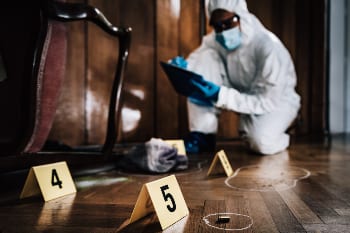 Under the Florida Anti-Murder Act, a judge has limited authority to grant bond for a felony violation of probation or community control case if the defendant is classified as a Violent Felony Offender of Special Concern. The Florida Department of Corrections prevents these individuals from being released unless the violation is for failure to pay court costs, restitution, or fines.
Under the Florida Anti-Murder Act, a judge has limited authority to grant bond for a felony violation of probation or community control case if the defendant is classified as a Violent Felony Offender of Special Concern. The Florida Department of Corrections prevents these individuals from being released unless the violation is for failure to pay court costs, restitution, or fines.
Take a look below to learn more about the different ways that Florida has structured its bond system to prevent violent felony offenders from reentering society and discover which qualifying offenses can land a defendant on the wrong side of the court.
The status of “Violent Felony Offender of Special Concern,” also known as VFO or VFOSC, is given to individuals who have been either arrested, convicted, or placed on probation for certain qualifying offenses, including anyone who has been charged as a sexual predator or a violent three-time felony offender. The term can apply to anyone on probation or serving community service who:
Designating an individual as a VFOSC is directly related to their previous charges or convictions. Certain qualifications and offenses are automatic grounds for the title of VFOSC and can prevent an individual from being able to seek a bond for their conviction.
By including non-murder offenses in the Anti-Murder Act, legislators in Florida are helping to mitigate future crimes from being committed by regulating the offender before they can apply for a bond, parole, or probation. In the instance of Florida’s Anti-Murder Act, qualifying offenses will permanently affect a defendant’s ability to obtain bond or seek probation, including the act or attempt of:
Individuals convicted of these charges are ineligible for bond, but anyone who has committed a sexual offense and is looking to go on probation may only do so after participating in a Danger Hearing. This is a court hearing where a judge reviews the available case information and speaks with a defendant to determine whether or not they pose a threat to their community. The judge considers certain factors, including:
It is important to note that even if a judge rules that the individual is not a danger to society, they may still deny the defendant bail. The State of Florida has a strict set of guidelines when it comes to keeping violent felony offenders out of society.
If you have been denied probation based on your previous charges, The Umansky Law Firm can help. Our experience in providing legal service for individuals in challenging situations can help you get the justice that you deserve.
Speak with a trusted attorney in Orlando, Florida, to learn more about our approach to defense and how we work with our clients to assist them every step of the way. When you’re ready, reach out to us online or call for your free case evaluation by our team of experts. We look forward to helping you get the best results for your case.
The Umansky Law Firm Criminal Defense & Injury Attorneys
